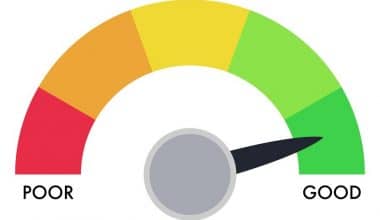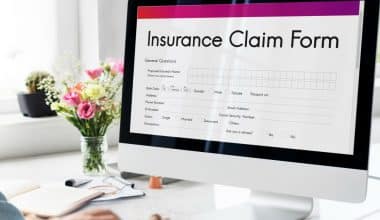Whatever kind of business you run—a convenience store or an online clothing shop—it might be hard to find insurance that fits your needs and even harder to get approved for coverage. The best business insurance for retail stores has a high approval rate and offers crucial security against a range of risks. To help you, we examined different costs and types of retailers’ insurance companies to help you find the best one.
Business Retail Insurance
Having retail business insurance can keep your store safe from lawsuits and other losses. Insurance for a retail establishment should cover both common risks and risks that are specific to your business. These are some of the most common risks that stores have to deal with:
- Unexpected events that hurt people or damage their property
- Sadly, crashes or bad weather can damage business property.
- Goods, work tools, or equipment being stolen or damaged.
- Computer systems have had data stolen.
- A worker getting sick or hurt on the job
- Loss of income after the business had to close to fix the damage.
In essence, talking to an expert is the best way to make sure that your insurance covers what you need. A seasoned agent knows how to ask the right questions and give you advice, such as suggesting add-ons or umbrella policies that will help you feel sure that your retail business insurance covers everything you need it to.
Types of Business Retail Insurance
The retail industry puts a lot of time and money into its operations. This is why several types of insurance, with policies, were designed specifically for retail businesses to help protect them from a wide range of accidents. These incidents could include weather-related damage, utility issues, theft, vandalism, and other human-caused issues, depending on the policy. Here are different coverage types to consider as you look for insurance.
#1. General Liability Insurance For Retailers
There are many risks that retailers face when they run their businesses. Getting general liability coverage is one of the best ways to lower those risks. General liability insurance protects companies from lawsuits alleging injuries, property damage, and other types of losses caused by their operations. Store owners need to have general liability insurance to keep their businesses from losing money because of lawsuits. This kind of insurance gives stores peace of mind that they are covered if customers file claims against them for carelessness, accidents, or other harm they say their business caused.
#2. Commercial Property Insurance
The purpose of commercial property insurance is to safeguard a retail establishment from financial losses incurred as a result of theft or damage to tangible assets. Coverages often offer security for retail store structures, property, business equipment, furniture, merchandise, signs, and outdoor fixtures. This insurance can also extend to outdoor fixtures.
That is to say, if a retailer’s facilities, business personal property, inventory, or other physical assets are essential to the operation of the firm, they should investigate the possibility of acquiring commercial property insurance. Without this insurance, even a single tragedy has the potential to generate significant financial losses.
#3. Business Income Coverage
Your “ride-out-the-storm” insurance is business income insurance. It functions alongside your property insurance to compensate for any income that was lost as a result of an insured disaster such as a fire, windstorm, hailstorm, or act of vandalism. A storm may require you to temporarily close your business so that you can restore the damage. Hence, this coverage can be used to replace lost net income or pay for ongoing obligations, such as payroll or the mortgage, as well as cover the cost of relocating the business if that becomes necessary.
Additionally, this kind of protection can be customized to meet your specific needs. If your suppliers are unable to supply the products on which your business depends, your broker might advise an endorsement for dependent property coverage, for instance.
#4. Employment Practices Liability Insurance
Protecting your business from charges that could come from employees is an important thing to think about if you own a store. Employment Practices Liability Insurance (EPLI) can safeguard the business against claims of
- Wrongful termination
- Discrimination
- Sexual harassment
- Wage And Hour Complaints
- Other employment-related matters
A worker can go to court if they don’t like their working conditions or think their rights have been abused. EPLI insurance can shield retail businesses from the financial harm of a successful claim by covering legal fees and potential awards or settlements.
You can also get important protection from lawsuits from job applicants or past employees if you have Employment Practices Liability Insurance. It can include claims that you didn’t hire or promote someone because of their gender, race, disability, or some other protected condition.
#5. Cyber Liability Insurance
Cyber liability insurance and coverage for data breaches are very important for the retail business. Because of the rise of online shopping, many stores now depend on technology to run their businesses and keep track of customer information. Because of this, more information is being kept online than ever before.
This makes it more likely for cyberattacks and data breaches to happen, which can be very bad for companies’ finances. Cyber liability insurance and data breach coverage are important ways to protect yourself from the financial losses that come with a data breach or other cyber event.
Types of Business Retail Insurance: How To Get
We now have a general idea of the types of business retail insurance you’ll need (remember to always look into your specific situation), as the next step is to get it. So, get the following ready before you ask for a quote:
- Business location(s)
- Gross annual sales
- Types of products sold
- Number of employees
- Details about your property (owned or leased, square footage, type of construction)
- Vehicle information (if applicable)
- Past insurance-claim history
After getting your quotes, review the policies and pick the best one. An honest agent won’t tell you to get insurance unless they think your business is really in danger. In addition, when you’re looking around for insurance, ask the following questions:
#1. Discount
Some insurance companies might give you a discount if you buy several policies at once or take certain safety steps.
#2. Process for Claims
Learn how they handle claims and check to see if the provider has a good reputation for handling claims fairly and on time.
#3.Optional coveragesl
Find out ifany other coverages couldd be useful, like internet liability or equipment breakdown insurance.
Best Retail Insurance
Selecting a reputable insurance company is important when getting insurance for a small business. The companies listed below offer some of the best and most affordable types of business retail insurance.
#1. Progressive
Progressive, like most insurance companies, offers a range of business insurance plans and categories of coverage. It covers things like workers’ compensation, professional liability, general liability, internet insurance, and a business owner’s policy.
The prices are pretty reasonable for the country’s most well-known business car insurance company. Most commercial customers of Progressive pay around $175 a month for a business car. There’s even a 15% discount if you pay your car insurance in advance.
Progressive will be there for you when you need them, in addition to delivering benefits. Improving a policy, adding a driver, or changing a car is quick and easy. Progressive offers 24-hour a-day, 7 days a week, service for business vehicles.
#2. Travelers
When it comes to business insurance, Travelers is another leader. The company works in many different fields, such as banking, manufacturing, retail, technology, construction, and more. Travelers cover businesses in the US, Canada, Ireland, and the UK. It has more than 30,000 workers and about 13,500 independent agents and brokers. Along with plans that are specific to your industry, Travelers offers a wide range of coverage types. Some of the most popular types of business insurance for Travelers include:
- General liability
- Workers’ compensation
- Management and professional liability
- Cyber
- Commercial auto and trucking
- Surety bonds
- Environmental liability
- Boiler and machinery
- Excess casualty and umbrella
Travelers is a great company to think about for workers’ compensation and general liability insurance, no matter what size your company is or how many staff you have in different states.
#3. Liberty Mutual
Liberty Mutual was our top pick for small business umbrella insurance because its base policy covers up to $25 million and can be raised to $100 million if needed. Companies that want to be completely protected from liability should make this choice.
Beyond the limits of current policies, such as auto, boat, and home insurance, Liberty Mutual’s umbrella insurance covers extra liability. For up to $250,000 in costs linked to media coverage and public relations consulting, the company’s umbrella policy also covers crisis management support services.
Also, concerning customer service, Liberty’s expert underwriters are taught to recognize complicated risks in many different industries, and their special complex liability claims unit knows how to handle huge losses.
#4. Chubb
Chubb is the best when it comes to taking care of their clients. People know that this insurance company pays out claims fast and without any problems, giving a “white glove” service. There are some types of business insurance that only Chubb offers that no other company does. Besides general liability and workers’ compensation, Chubb offers the following types of business insurance:
- Health and accidents
- Cyber Security
- The environment
- World tragedy
- Mid-sized businesses can find international options
- Liability of management
- Liability in medicine
- Recall of the product
There are some coverage choices on this list that we haven’t seen from other providers in this guide, as you can see.
#5. Nationwide
Nationwide is our last choice for the best small business insurance company for general liability plans because it offers a wide range of add-ons that can be used to improve this coverage, such as liquor liability and personal and advertising injury coverage. This lets small business owners change the policy so that it fits their field.
Nationwide also has many types of insurance for small businesses, such as workers’ compensation insurance, commercial property insurance, business liability insurance, and commercial car insurance. However, Nationwide’s general liability insurance can also be paired with extra coverage for the following:
- Liability for fire
- Liability for cars
- Rules for umbrellas
Retail Insurance Cost
For the safety of both the shop and its customers, retail insurance is a must. Retail shop owners face many risks, such as theft, property damage, liability, and other losses that can happen. Business insurance can help cover these losses. What types of coverage are required and how the cost is determined are important for understanding how much retail business insurance costs.
Retail Insurance Cost: Factors Affecting It
The cost of retail insurance is based on a variety of factors, including the
- Size of the store
- inventory value
- claims history.
- The number of policies
- Types of coverage and policy limits
- Business location.
- Number of employees.
- Previous claims history
- business assets
- Industry.
- Nature of your business.
The cost of retail insurance coverage will typically increase as a store sells more expensive items. The size and location of the store may also have an impact on costs. Stores in areas that are prone to natural disasters or have a lot of crime might be liable for more insurance than stores in better parts of town. So, make sure you are adequately covered for what your retail shop needs when figuring out the cost of retail insurance.
Therefore, to lower their insurance costs, retail stores need to first figure out what common risks cause injuries on the job, like customers slipping and falling or employees getting hurt at work, and then look for ways to reduce these risks for their small businesses with insurance.
What is the difference between retail and wholesale insurance?
wholesale brokers have a direct working relationship with the insurer, whereas the retail agent who produced the business does not.
What is retail life insurance?
Retail or advised life insurance is coverage that you can purchase with the help of a financial or insurance adviser.
Is it better to buy wholesale or retail?
Buying wholesale may be a more expensive upfront investment, but it could save you money in the long run if you purchase products in bulk.
Are retail companies insured for theft?
Yes, crime insurance coverage can protect your company from employee theft






